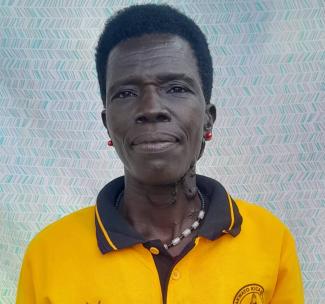Women Smallholder Farmers Building Roads and Breaking Barriers
“If you don’t like the road you’re walking, start paving another one”, famous country musician Dolly Parton once said—and the women smallholder farmers of Cetkana-Atiba village in Gulu, Uganda, took that quite literally.
“Our roads were terrible, extremely so,” says Lucy Oryem.
“Like it wasn’t already bad enough; when the rains came, it flooded so much that a visitor could think we had a small lake. That was the only road that leads to the health center and the school. Most of the children stopped going to school. The few who persisted had to walk over eight kilometers every morning through alternative garden routes,” she adds.
Oryem is one of the many remarkable women smallholder farmers who demonstrate what can be achieved when given the right platforms and opportunities to influence government decisions that impact them at various levels.
“Before this project came, we feared approaching our leaders. It felt almost blasphemous,” Lucy says.
“But these people came here and taught us to network with our leaders, right from the village level up to the top district officials. We had always had issues but didn’t know how and where to raise them”.
The Strengthening Implementation of the National Seed Policy Project (SISP) is funded by the USAID/Uganda Civil Society Strengthening Activity (CSSA), and implemented by Ugandan organization SORUDA, in the three districts of Gulu, Lamwo, and Omoro in Northern Uganda.
Daniel Ikwap, SORUDA’s Programme Manager, says SISP was very intentional about ensuring the participation of women smallholder farmers in the different levels of governance.
“We trained them on proven advocacy and networking methods to be able to effectively influence government decisions that affect them,” says Daniel. “And we also provided platforms for them to meet and interact with their local and district leaders.”
“We now speak very confidently and demand the services we know we deserve,” Lucy says.

“My children, like many others, had stopped going to school because the road was cut off,” says the mother of six. “So, I rallied the women in the village, and we began to persistently contact leaders from the local councilors all the way up to address this issue.”
“And finally, they yielded. Our road has been repaired and a culvert put in place to prevent it from flooding again—and the children are back in school,” she says joyfully.
The USAID-sponsored SISP project also supported women entrepreneurs with gender-specific laws and strategies to strengthen their access to resources, credit, and other financial products, as well as building their leadership capacities, which Lucy speaks very proudly of.
Lucy’s story is a reminder how empowered women can be transformers of their lives and the leaders in their communities. With continued support of the United States and partners, the future is brighter for small women farmers and the community of Cetkana-Atiba village in Gulu.
“I will be running to be the area councilor in the upcoming elections,” Lucy says, smiling broadly. “I have never felt this confident since my husband passed on twelve years ago.”

